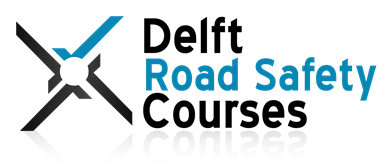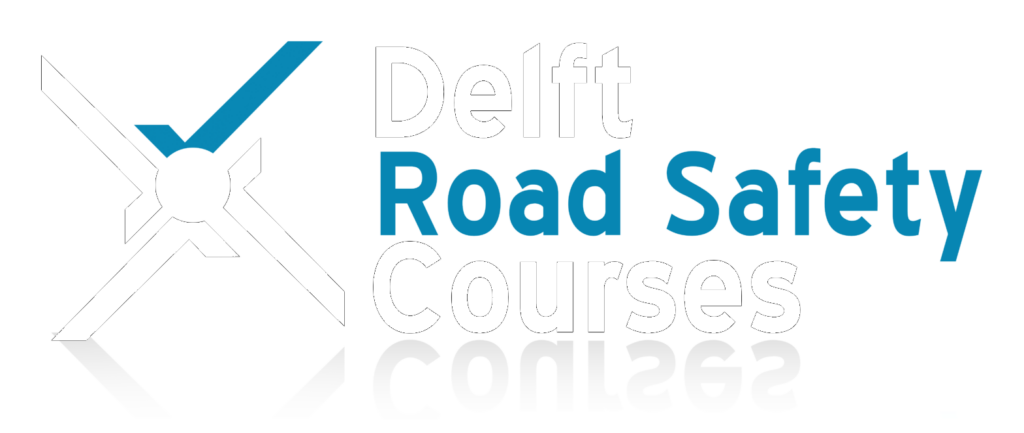Frequently Asked questions
When is the deadline for applications?
Applications for the 2024/25 Annual Course for Low and Middle Income Countries are now closed.
Sign up to our newsletter and follow us on social media to find out more about upcoming opportunities.
What are the eligibility criteria and how are participants selected?
The academic evaluation intends to assess the quality and potential of the applicant. DRSC strives to admit applicants that can contribute to DRSCs strategy in the best way possible:
DRSCs strategy is to support safer mobility in low and middle-income countries through high level
capacity development. Capacity development supports the development and implementation of
evidence-based road safety strategies and action plans that are relevant to each country’s unique
local context. DRSC strives to develop and enhance participants’ road safety knowledge and skills and
empower to design and implement effective road safety management in their countries and design and implement evidence-based interventions in their countries.
All applications are evaluated by an Academic Evaluation Committee against the following criteria:
- Academic or higher professional education.
Successful applicants will have a Bachelor's degree (and preferably a Masters degree) or similar in a subject related to road safety.
- Professional background.
Successful applicants will be professionals with a stable position working in road safety and safer mobility in a low and/or middle income country or countries. Applicants that are based in a high-income country but work with low-middle income countries are also eligible. - English language proficiency.
All lectures, discussions, and course materials are in English. Spoken and written English language proficiency is essential. - Motivation and capacity.
Applicants must have the support of their employer to work on improving road safety and should have a strong motivation and demonstrate their capacity to contribute to promoting the safe system approach in his/her workplace.
Please note that a limit is put on the maximum number of participants from one country or organisation (max. 2 or 3).
Find out more about our Admissions and Scholarships procedure here.
What's included in the Course Fee?
The Course Fee typically includes all lectures and workshops; field trips; accommodation; and all meals and refreshments.
Participants are responsible for booking and financing their travel costs. This includes visa application costs, and travel and health insurance.
Extra nights in the Netherlands, optional travel extensions, and personal expenses (room service, etc.) are also not covered.
Find out more about our Course Fees and available scholarships here.
What kind of scholarships are available?
DRSC encourages participants to actively seek the means to finance their course fee. e.g. through their organisation, sponsor, third party, or themselves.
Participants that are able to cover (part of) their course fee are prioritized in the selection process.
However, DRSC does offer a limited number of scholarships for the classroom part of the Annual Delft Road Safety Course in Delft, Netherlands.
Scholarships are offered at either 25%, 50%, 75% or 100% of the Course Fee depending on need.
You can apply for a scholarship through the Online Application Form when you apply for the Course.
A decision on the allocation of scholarships will be made upon completion of Part 1 of the course
(in November-December 2024). Decisions will be based on (1) the results of the academic evaluation, (2) the participants’ results of the online course and (3) the capability of participants to have the course
fee fully or partially financed.
Find out more about our Course Fees and available scholarships here.
How do I pay the Course Fee?
Successful applicants will be formally offered a place by DRSC. At this point, candidates will be invited to accept the offer and asked to confirm their ability to travel during the course dates.
Once they have confirmed, candidates will be sent an invoice for the Course Fee. This should be paid by BACS transfer using the bank details on the invoice.
If you prefer to pay by credit card, please let us know. We then need to provide you with a payment link. Credit card payments will incur an additional €12 administration charge.
The invoice must be paid prior to the course start date.
Are there any language requirements?
All lectures, discussions, and course materials are in English. Spoken and written English language proficiency is essential.
What if I am unable to attend? Will I get a refund?
Please contact us as soon as possible if you are unable to attend the Road Safety Course.
For on-campus (in person) courses, admitted applicants can cancel their registration in writing no later than 8 weeks before the start of the course. For online courses, admitted applicants can cancel their registration in writing no later than 3 weeks before the start of the course.
The course fee minus any bank transfer costs will be fully repaid by DRSC. DRSC will not repay the course fee in full or in part in case of cancellations after these deadlines.
Your place on the course cannot be transferred to an associate or other individual within your organisation.
DRSC reserves the right to cancel or postpone an on-campus course no later than 6 weeks
before its scheduled start date and an online course no later than 2 weeks before its scheduled start date. In such cases, course fees received by DRSC will be fully refunded.
Delft Road Safety Courses does not accept liability for claims, liabilities, and damages arising directly or indirectly out of this procedure. In particular, any costs related to the cancellation or re-scheduling of flights.
Does participating in DRSC count towards academic credits or professional qualifications?
DRSC offers post-graduate professional training. We strive to develop and enhance participants’ road safety research skills and empower them in contributing to structures that support the organization and governance of road safety management in their countries.
However, participation does not count towards any academic credits or qualifications.
Will I receive certification on completion of the course?
Yes! Candidates who pass all aspects of the course successfully will be awarded a Certificate of Completion signed by the Course Leaders.
Find out more about our Certification Policy and assessment criteria here.
What are your Terms and Conditions?
Do I need a visa to visit the Netherlands?
Depending on your nationality, you may need a visa to enter the Netherlands. The Visa Advisor will help you determine whether you need a visa.
If you do require a visa, it is recommended that you apply for a Short-Stay Schengen Visa which will allow you to stay in the Netherlands and other Schengen countries for a maximum of 90 days within a 180-day period. Find out more here.
Please Contact Us if you require a letter of support for your visa application.
How do I get to Delft?
All participants are responsible for booking and financing their own travel costs.
Delft is very well connected to both Schiphol International Airport (Amsterdam) and Rotterdam-The Hague Airport as well as to other Dutch cities by trains, buses and trams.
By plane
Schiphol International Airport (Amsterdam) the Netherlands’ largest airport. There is a direct train connection between Schiphol International Airport and Delft railway station. This takes approximately 45 minutes. A single (one-way) ticket costs approximately €12.
There are also a number of indirect trains with changes at either at Leiden Centraal or Den Haag HS.
Alternatively, you can travel to Rotterdam The Hague Airport – a smaller airport, closer to Delft. The RET city bus number 33 runs frequently from the airport to Rotterdam Centraal Station. The journey will take around 20 minutes. From here you can take a train to Delft railway station. This takes approximately 15 minutes.
By train
Delft has two railway stations: Delft (near the city centre and best for the university) and Delft Zuid (Delft’s southern residential area). Direct train connections run from:
Den Haag Central Station or Hollands Spoor (10 min.)
Schiphol Airport (45 min, € 9.50)
Amsterdam (1 h.)
Rotterdam (15 m.)
Train tickets can be booked through the website of the Netherlands Railways.
Tickets for local public transport can be booked here.
By car
Delft is easily reached by car. Coming from Amsterdam or Schiphol, it is at the end of the A4 motorway. A taxi from Schiphol Airport will cost approximately €100.
Coming from Rotterdam, Delft has three exits off the A13 motorway. The city centre is best reached via the IKEA exit. During the weekend this exit can be busy with IKEA shoppers, then take the North exit. A taxi from Rotterdam The Hague Airport will cost approximately €35.
Who do I contact for more information?
If you have any further questions, please contact us by email at course@delftroadsafetycourses.org

